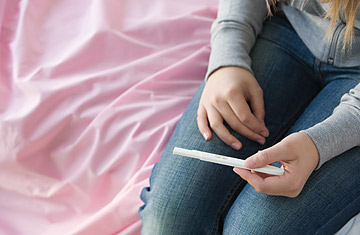
(9 of 14)
Wilson is part of a new breed of black academicians and leaders who have begun to acknowledge teenage pregnancy as a major issue for the black community. The National Urban League has declared it its No. 1 concern and last spring, on Father's Day, launched a program aimed at teenage boys, the often forgotten partners in the problem of teen pregnancy (see box). Says League President John Jacob: "We cannot talk about strengthening the black community and family without facing up to the fact that teenage pregnancy is a major factor in high unemployment, the numbers of high school dropouts and the numbers of blacks below the poverty line."
This public recognition from black leaders is a significant departure from the past. Back in 1965 when New York Senator Daniel Patrick Moynihan, then Assistant Secretary of Labor, released a study depicting instability in the black family and stressing the problem of the absentee father, he was roundly accused of racism for ignoring the economic basis of the situation. In the heyday of the civil rights movement, admits Jacob, "teenage pregnancy was not the kind of subject we were willing to deal with publicly. We felt the black community would be blamed." That lack of attention was unfortunate, as black leaders now acknowledge. In the years since the Moynihan report, observes Eleanor Holmes Norton, the status of the black family has deteriorated. In 1965, she points out, only about one-third of black children were born to single mothers. Now more than half are. She insists that the black family remains strong, but admits "there have been important structural changes that will be hard to reverse."
Some blame the welfare system for contributing to the disintegration of the black family by providing an incentive for young women to have babies. While rules vary from state to state, indigent girls generally become eligible for public assistance in their third trimester of pregnancy. Most social-service workers argue, however, that the welfare system is at most a minor factor in teenage pregnancy. "It's possible that with no assistance, we would see fewer kids going to term," says Radosh of New York City's mayor's office. "But I don't think you'd see fewer getting pregnant."
Guttmacher researchers concur, pointing out that countries like Holland, Sweden and France provide far more generously for indigent young mothers, yet have low pregnancy rates. Research by Sociologist Frank Furstenberg of the University of Pennsylvania further refutes the notion that teenagers who become pregnant are simply looking for a handout. In following 400 young black mothers in Baltimore, Furstenberg discovered that most were "surprisingly motivated to get off welfare." In fact, 17 years after bearing a first child, only one-quarter were receiving public assistance.
